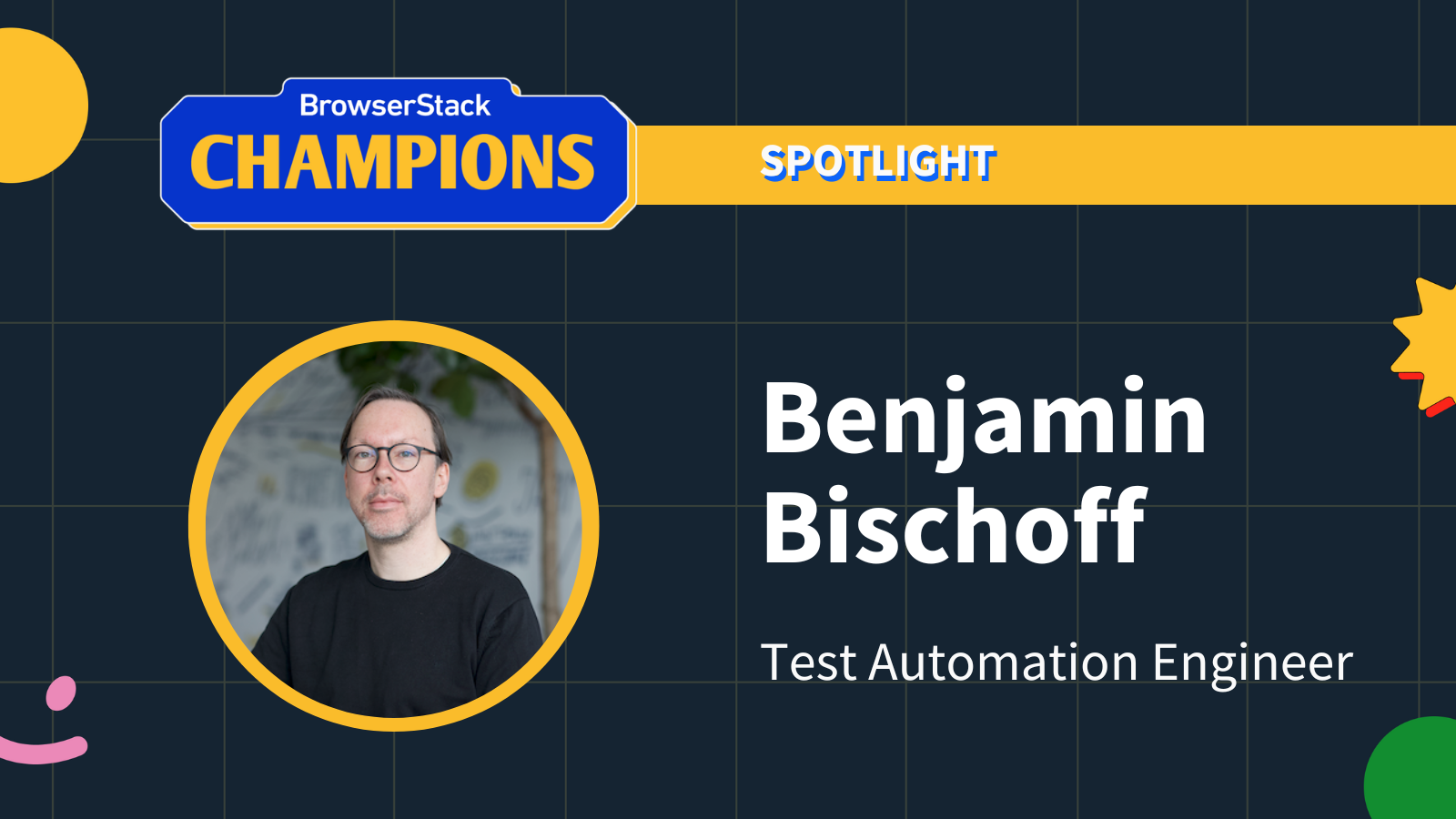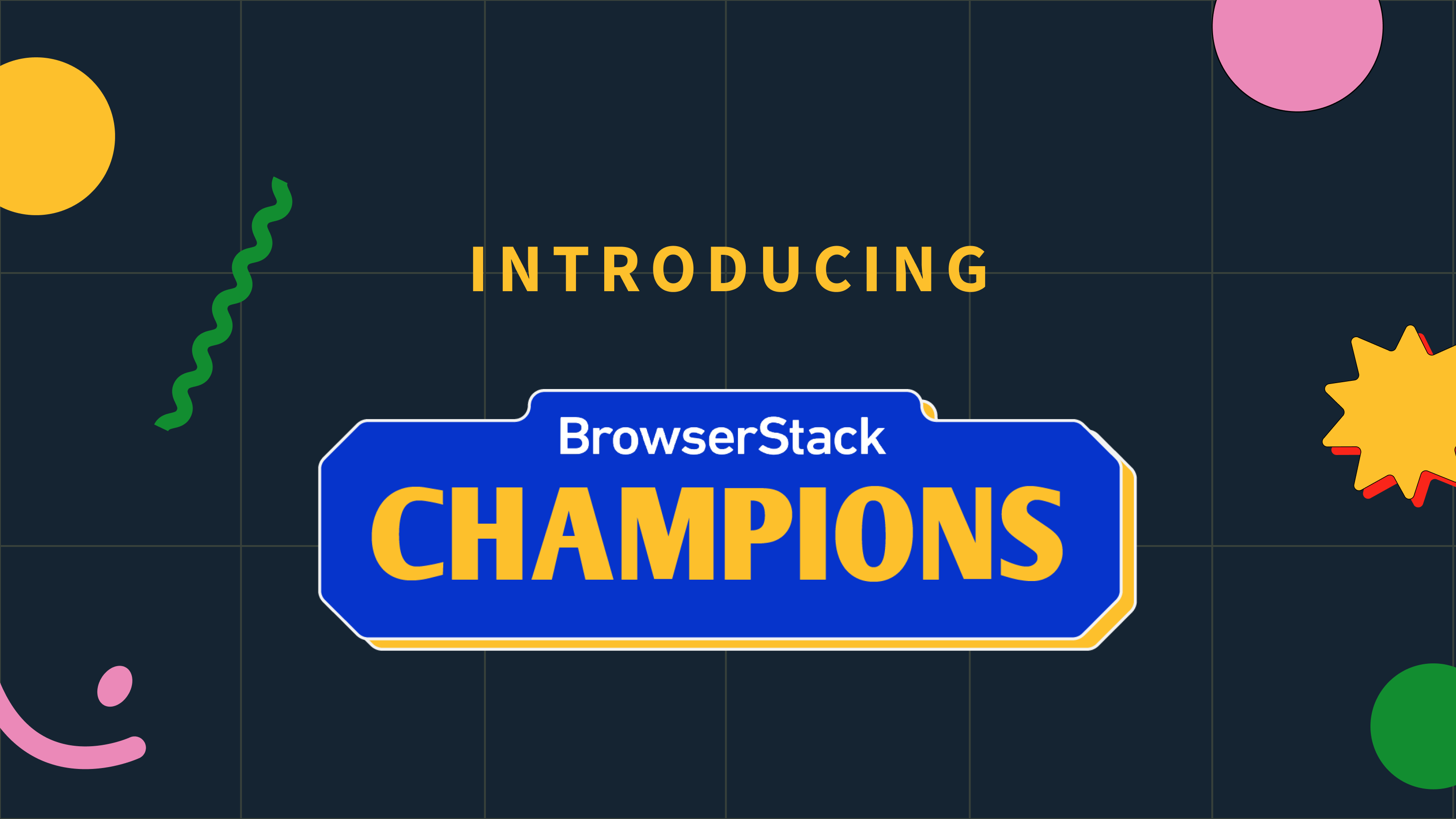Interview with a Test Automation Engineer, Conference Speaker, and Magician - Benjamin Bischoff

We recently had the pleasure of speaking with one of our BrowserStack Champions, a Test Automation Engineer, conference speaker, and magician who has been in the IT industry for over 20 years. In this interview, he shares insights into his background, experience with the Champions Program, and advice for new QA engineers.
Tell us about your background. How did you become a Test Automation Engineer, conference speaker, and now BrowserStack Champions?
I knew pretty early in school that I wanted to develop software. When I was about 10, some people around me started Basic programming and I quickly became interested in that too. This led to taking programming courses and after school, picking up vocational training to become an IT specialist for application development. I never studied. After a few years of work in IT agencies, I became self-employed for six years, working mainly as a web and ActionScript developer (remember Flash?). Through this, my next step was the games industry. I worked at Ubisoft for six years, first as a front-end lead programmer for a Facebook game, later as a tools and services developer using Java Enterprise. During this time, I started to get interested in software testing that led me to being a Test Automation Engineer at trivago in the end. I have been doing that for about seven years now.
At my current company, I also picked up conference speaking since I was always driven towards knowledge-sharing and also wanted to challenge myself. This aspect of my career has really gained momentum - last year I spoke at 12 events.
I joined the BrowserStack Champions community when I was heavily involved with browser testing and test grids at trivago, and have worked with BrowserStack on a few webinars and conferences before that.
What do you like to do outside work?
My biggest hobby has been practicing and performing close-up magic for 35 years now. The interest in magic started with a magic set when I was about eight years old and it has never ceased. Especially card magic. I always found it exciting, my colleagues know that too. Meanwhile, it has become normal that I sit at my desk and practice card sleights on the side while I’m in Zoom meetings. It has helped me become more confident and shed some of my introversion - great prerequisites for public speaking
What do you like the most about your role?
I really like my role because it involves constant learning. As a bridge between application developers and testers, you are involved in the entire software lifecycle. You have to stay up-to-date with testing technologies, but also things like databases, cloud providers, DevOps, development of CI/CD pipelines and much more. It’s always a good feeling when the tools I’ve developed are helpful and contribute to increasing the quality of our user-facing software.
Tell us about your experience with the Champions Program. What prompted you to join the initiative?
I wanted to join the Champions program primarily to have one more relevant resource to keep up with the trends. In IT, time never stands still and this community sometimes gives me new impetus to look at new technologies or testing practices.
What’s the best thing about having a community of a league of experts?
You are never alone with your struggles. It’s like a safety net when it comes to solving certain problems. Also, it feels good to help when you have the solution for someone else.
Have you used BrowserStack? What do you like most about our products?
I have used BrowserStack for some years. I liked the straightforward integration into our test pipelines and the wide range of browsers and devices.
Do you have a preferred language/tool/framework? Why?
Java is still the language I hate the least and that I am most comfortable with. I have to say that C# is a close second at the moment, especially since I still do some game projects in Unity on the side. Selenium will always have a special place in my heart. It basically triggered my decision to fully invest myself into test automation and change my career. At the moment, Karate is turning into my favorite framework because it keeps a good balance between power and simplicity
What new things are you excited about and looking forward to in QA?The rise of AI tooling is exciting and scary at the same time. I’m not talking about such tools eliminating tester jobs - I don’t see that yet at all. Rather, I mean the challenge of testing such systems. Outsourcing functionality to the cloud also has its own set of obstacles that requires a whole new level of learning. But as I said, that’s what keeps this profession so interesting.
For new QA Engineers starting their career, what are some of the most effective things they can do right now to prepare themselves for future success?
Don’t turn a blind eye to automation, but see it as a change to enrich exploratory testing. Don’t be afraid of communication, especially asking questions and expressing doubts.
What do you think is the best way for developers/testers to network? What social media networks do you frequently use?
Until recently, I was very active on Twitter and especially liked the tester community there. In the meantime, however, I have left this platform, as it has now gone down the drain and is no longer the free communication platform it once was. Therefore, I have rather shifted my activities to my own website softwaretester.blog and LinkedIn. I am also a member of the Ministry of Testing community, which I would also recommend. However, if you want to network, nothing beats the testing conferences, where you can exchange ideas right on the spot.
Find Benjamin: Linkedin | Twitter | YouTube | Website


